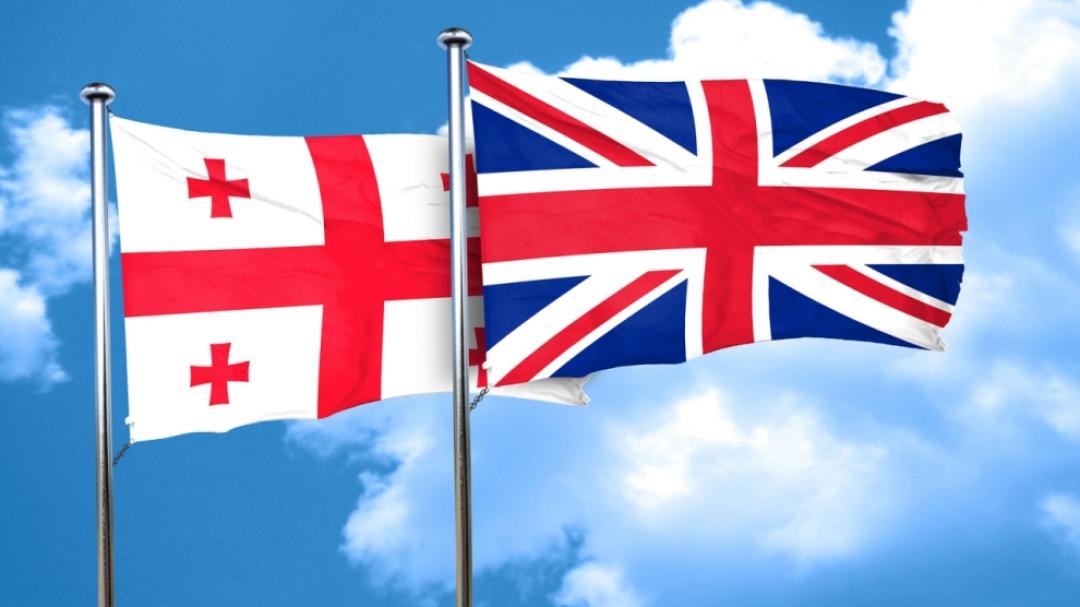
Georgia Faces International Backlash as UK Joins Calls for Democratic Reforms

The United Kingdom has announced the suspension of all program support and defense cooperation with the Georgian government following a recent violent crackdown on protests. UK Foreign Secretary David Lammy condemned the Georgian authorities’ actions, describing the treatment of protesters and journalists as “unacceptable” and calling for an immediate cessation of such behavior.
In a strongly worded statement, Lammy emphasized that the UK would reduce its engagement with the Georgian Dream government until the situation improves. “The shocking scenes of violence toward protesters and journalists must stop,” Lammy declared. “In light of ongoing events, the UK will immediately suspend all program support to the Georgian government, restrict defense cooperation, and limit engagement with representatives of the Georgian Dream government until there is a halt to this move away from European democratic norms and freedoms.”
Lammy further criticized the Georgian government's actions, asserting that they undermined Georgia's international reputation and contradicted its constitutional commitment to European integration. "These actions tarnish Georgia's international standing," he said, adding that the UK stands firmly with the Georgian people in their right to determine their country's future. He pledged continued support for Georgian civil society and peaceful protests.
The UK's decision follows a series of similar actions from other international partners as Georgia faces growing criticism for its shift away from European democratic principles.
Pro-EU demonstrations in Georgia have escalated recently, fueled by the Georgian Dream government's decision to delay the country's accession to the European Union until 2028. The announcement has sparked widespread public outrage and prompted international concern.
On November 28, Sweden's Minister for International Development Cooperation and Foreign Trade, Benjamin Dousa, declared that Sweden would cease direct cooperation with the Georgian government. Shortly after, on November 30, U.S. State Department Spokesperson Matthew Miller announced suspending the United States' strategic partnership with Georgia, citing the same decision to postpone EU accession as a key factor.
Germany has also taken a firm stance. Svenja Schulze, Germany’s Federal Minister for Economic Cooperation and Development, stated that no new development cooperation projects with Georgia would be approved or launched, nor would any loan agreements be signed. Schulze highlighted that these measures reflect increasing international alarm over Georgia’s retreat from its European aspirations.
The wave of international suspensions and restrictions signals a growing frustration with the Georgian Dream government’s policies. Critics argue that the government’s decisions contradict Georgia’s longstanding ambition to join the European Union, as outlined in its constitution.
While the Georgian government has defended its actions, claiming that the EU accession delay is necessary for internal reforms, protesters and international observers view this as a move away from democratic norms and freedoms.
With mounting pressure from both domestic and international fronts, Georgia faces an uncertain future. The question remains whether the Georgian government will reverse its course and restore its commitment to European integration or risk further isolation on the global stage.
For now, the UK and its allies reaffirm their support for the Georgian people, calling for a return to democratic principles and a halt to any further crackdowns on dissent.
See Also


Mirzoyan Meets US Deputy Assistant Secretary Joshua Huck

Azerbaijani President Holds Talks with UAE and German Business Delegations on Economic Cooperation

Grigoryan Confirms Armenia’s Readiness to Dissolve OSCE Minsk Group Upon Peace Treaty Signing

Azerbaijani Official Warns of Ecological Risks to Caspian Sea, Similar to Lake Urmia and Aral Sea

